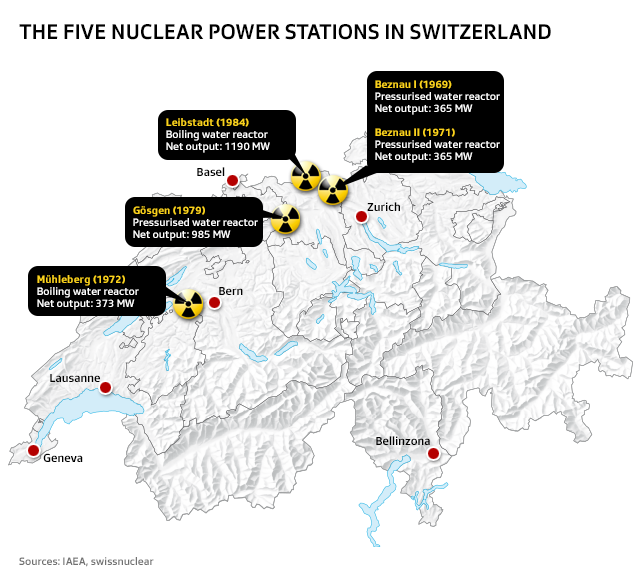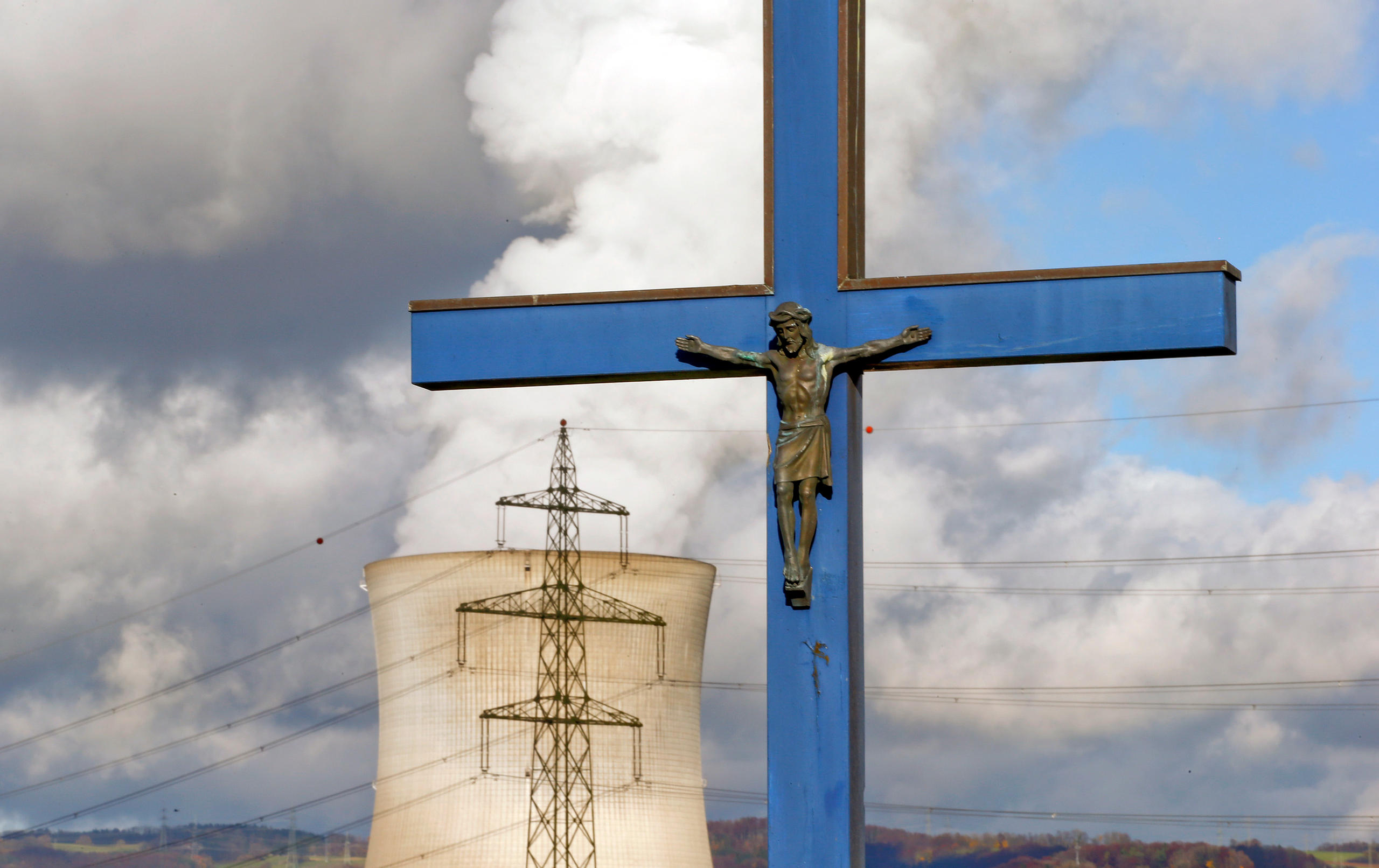A quick nuclear power exit will advance renewables
Switzerland’s nuclear power plants are among the oldest in the world and an accident could have catastrophic consequences. Developments in renewable energies mean Switzerland can exit nuclear power without risking supply problems, writes Nils Epprecht, of the Swiss Energy Foundation. The Swiss vote on the issue on November 27.
Chernobyl and Fukushima showed us that nuclear accidents do happen. In densely populated Switzerland, this would be catastrophic. As many as a million people would be affected and large parts of the centre of the country would be uninhabitable. Switzerland as we know it today would no longer exist.

We are sitting on the oldest nuclear power plant in the world. The longer nuclear power plants operate, the more unsafe they become – central elements of the reactor age and cannot be replaced. Even the Swiss Federal Nuclear Safety Inspectorate has cautioned against underestimating this. No insurance policy in the world covers the risk of a nuclear accident. House and landowners, for example, would lose their assets for good, with no compensation.
Europe’s electricity glut means that expensive nuclear power has been lossmaking for a long time. Nuclear power station operators are close to bankruptcy. Despite that, they don’t switch the plants off, but instead hope for unrealistic prices and rescue subsidies from the state and from taxpayers. In the meantime, reactors continue to produce highly dangerous nuclear waste. It is more than questionable how its disposal will be financed given the fact that the sums set aside by operators are far too low.
Around the world, plans to build new nuclear power stations have been cancelled or delayed because they are too expensive. Only nations that are nuclear powers are willing to finance reactors, as a by-product of manufacturing nuclear weapons.
A plan is needed
Surveys over the past years show that an exodus from nuclear power is the wish of the majority from the political left to the right. But parliament hasn’t come up with a concrete plan. This is where the initiative comes in. It sets out a firm, step-by-step timetable for the closure of all five reactors: The three oldest reactors in Beznau and Mühleberg will close in 2017, the plant in Gösgen in 2024 and the plant in Leibstadt in 2029. Beznau I has already been temporarily out of action since March 2015 for safety reasons.

The plan creates political clarity, space on the grid and security for the industry to invest in the necessary substitute power plants. Replacing nuclear power swiftly will help advance renewable energy and promote energy efficiency.

More
The risks of a rapid nuclear exit
The old and fragile nuclear power stations are becoming increasingly unreliable and pose an agglomerated risk to the security of the energy supply. The share of nuclear electricity in the mix has fallen steadily in the past years. Today it accounts for around 33%External link. If we replace it with renewable energies such as solar, biomass (wood, waste) and wind, our electricity supply will be more independent and more reliable owing to decentralised production.
Alternatives are available
In recent years, enough renewable energy sources have been created to allow the three oldest nuclear power stations to be switched off. By 2029, it will be easily possible to expand on this and do what countries such as Denmark, Portugal and Germany have already achieved.
Domestic hydro-electric power will also benefit from this extension of renewables: Its value will increase because it can conserve excess renewable energy. Grid operator Swissgrid confirms that Switzerland is well-positioned for the energy revolution because of this. The supply shortfalls that our opponents allude to simply don’t exist; hardly any other country is as well integrated into the European electricity grid as Switzerland. The low prices are evidence that there is too much electricity on the market, not too little!
Many companies are already preparing for the future energy market. Municipalities and private players are ready to play their part. Together they create jobs and vocational training – as well as income – across the country. Independent studies show that an energy revolution has the potential to create as many as 85,000 new jobs. But as long as massively subsidised nuclear power stations are flooding the market with electricity, no one is ready to work seriously to build more renewable energy power plants.
Anyone who desires a safe and reliable electricity supply in the future should let go of the handbrake and vote “yes” on November 27. An exit from nuclear power should be anchored in our constitution.

More
Is time up for nuclear power in Switzerland?
The views expressed in this article are solely those of the author, and do not necessarily reflect the views of swissinfo.ch.
swissinfo.ch publishes op-ed articles by contributors writing on a wide range of topics – Swiss issues or those that impact Switzerland. The selection of articles presents a diversity of opinions designed to enrich the debate on the issues discussed.
Translated from German by Catherine Hickley

In compliance with the JTI standards
More: SWI swissinfo.ch certified by the Journalism Trust Initiative









You can find an overview of ongoing debates with our journalists here . Please join us!
If you want to start a conversation about a topic raised in this article or want to report factual errors, email us at english@swissinfo.ch.